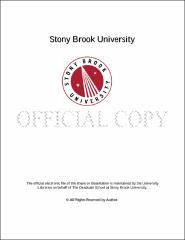| dc.identifier.uri | http://hdl.handle.net/11401/78325 | |
| dc.description.sponsorship | This work is sponsored by the Stony Brook University Graduate School in compliance with the requirements for completion of degree | en_US |
| dc.format | Monograph | |
| dc.format.medium | Electronic Resource | en_US |
| dc.format.mimetype | Application/PDF | en_US |
| dc.language.iso | en_US | |
| dc.type | Dissertation | |
| dcterms.abstract | My dissertation, “London Partsong Clubs and Masculinities, 1750–1830,” examines how the musical activities of all-male singing clubs in London played a key role in the formation of English masculine identities during the eighteenth and early nineteenth centuries. This particular time frame usefully demarcates a period of significant transformation from the fluid gender personae of early eighteenth-century society to the rigid gender binaries of the Victorian era. The partsongs sung during the private, weekly club meetings were harmonized settings of English texts (often 3–5 vocal parts) performed without accompaniment. As a genre written primarily by and for men within social settings, partsong serves as a unique lens for understanding how singing reinforced club members’ perceptions of gender identity and male friendship. Chapter one locates the rituals and conviviality of partsong clubs within underlying contexts of Parliamentarianism and Freemasonry. Chapter two argues that the inclusion of Elizabethan madrigals within eighteenth-century collections of glees was an attempt to establish newly-composed club music as the culmination of a longstanding English musical canon, relating to burgeoning ideas of antiquarianism and nationalism. Chapter three applies both eighteenth- and twenty-first-century philosophies of sympathy, sentimentality, and gender to the analysis of commemorative glees written upon the deaths of club members. Finally, chapter four considers how the growing prevalence of women as patrons, consumers, and performers of partsong influenced song material and performance practices. In concluding with women, my project argues that the realization of emergent ideas concerning masculinity was partially dependent upon contemporaneous views on femininity. | |
| dcterms.available | 2018-07-09T12:57:06Z | |
| dcterms.contributor | Calcagno, Mauro. | en_US |
| dcterms.contributor | Minor, Ryan | en_US |
| dcterms.contributor | Honisch, Erika | en_US |
| dcterms.contributor | Weber, William. | en_US |
| dcterms.creator | Cencer, Bethany | |
| dcterms.dateAccepted | 2018-07-09T12:57:06Z | |
| dcterms.dateSubmitted | 2018-07-09T12:57:06Z | |
| dcterms.description | Department of Music. | en_US |
| dcterms.extent | 206 pg. | en_US |
| dcterms.format | Monograph | |
| dcterms.identifier | http://hdl.handle.net/11401/78325 | |
| dcterms.identifier | Cencer_grad.sunysb_0771E_13455.pdf | en_US |
| dcterms.issued | 2017-08-01 | |
| dcterms.language | en_US | |
| dcterms.provenance | Submitted by Jason Torre (fjason.torre@stonybrook.edu) on 2018-07-09T12:57:06Z
No. of bitstreams: 1
Cencer_grad.sunysb_0771E_13455.pdf: 8453123 bytes, checksum: af4654796147c435ac0858fcaa2d9f5c (MD5) | en |
| dcterms.provenance | Made available in DSpace on 2018-07-09T12:57:06Z (GMT). No. of bitstreams: 1
Cencer_grad.sunysb_0771E_13455.pdf: 8453123 bytes, checksum: af4654796147c435ac0858fcaa2d9f5c (MD5)
Previous issue date: 2017-08-01 | en |
| dcterms.subject | Music | |
| dcterms.subject | Gender identity | |
| dcterms.subject | Masculinity | |
| dcterms.subject | Gender expression | |
| dcterms.title | London Partsong Clubs and Masculinities, 1750-1830 | |
| dcterms.type | Dissertation | |

